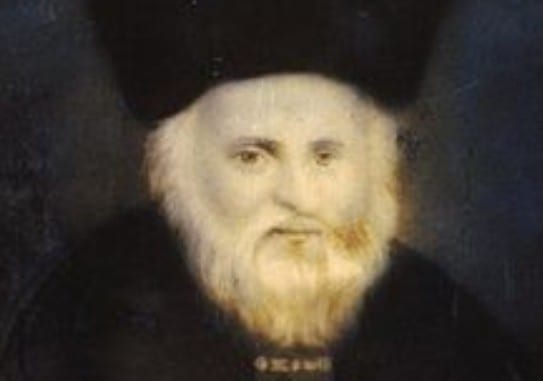Amongst all the great personalities that appear in the Torah, the Avos (forefathers) hold an exalted place. Chazal tell us that there are only three Avos and no more.[1] This indicates that the concept of being an Av is not merely being a physical ancestor because in a physical sense we are also all descended from Terach and Noach, yet they are not described as our forefathers. Rather it implies a far deeper, spiritual connection that all Jews inherit from the Avos.
The Medrash states: “the Avos are the Chariot.”[2] The Maharal explains that this means that they are the vehicle by which HaShem’s Presence dwells in this world.[3] Rav Dessler zt”l elaborates on the meaning of this Maharal, writing that in every action of the Avos, the Holiness of HaShem was revealed in this world.[4] The practical application of this idea is that there are three basic character traits that form the foundation of all traits. HaShem displays these three traits in their perfection, however before the advent of the Avos, the people of the world were unaware of these traits and how they demonstrate HaShem’s greatness.
The Avos excelled in these traits, thereby accomplishing a dual achievement; firstly, they demonstrated HaShem’s greatness in and of itself, and second they taught other people how to emulate HaShem by emulating their character traits and which in turn would enable them to emulate HaShem Himself. By analyzing how they excelled in each trait we can understand how we too should approach character development and in turn, developing our connection to HaShem on a deeper level.

The three traits that the Avos excelled in are labeled in different ways, but they are commonly described as Chessed, Gevurah and Emes, which are literally translated as, kindness, strength and truth. Avraham excelled in chessed, Yitzchak in gevurah, and Yaakov in emes. These translations are not fully accurate. Rav Dessler writes that each Av excelled in one of these traits, and their role was to teach about their special trait to the world. He continues that this teaches us that, “the first goal of man’s Divine Service is to recognize and reveal his main trait, bring it to its completion through the Torah and be strong in it.” Thus we learn from the Avos that if a person has a natural inclination to a particular trait then that indicates that HaShem gave him that particular strength so that he can utilize it to fulfill HaShem’s will in this world. However, Rav Dessler notes further that we also learn from the lives of the Avos that it is insufficient to perfect one’s natural strengths, he must also work hard to bring out the other character traits that are less naturally in tune with his character.[5]
Rav Yaakov Kamenetsky expands on this point: He observes that the Avos more than anyone else faced extremely difficult tests and that these challenges were particularly in areas that challenged their natural inclinations. Rav Kamenetsky explains that even though a person excels in his Avodas HaShem through his own natural trait, there is still the possibility that he is not purely acting from a desire to perform HaShem’s will rather that he is simply acting according to his nature. In order to test him to ascertain the intentions behind his actions, it is necessary to place him in situations where he is required to act against his natural inclinations. If he still succeeds in doing HaShem’s will it demonstrates that he was acting purely for the sake of HaShem.
In addition to the lessons we can derive from the Avos with regard to character traits, the other characters in the Torah that lived at the same time as the Avos add their own contributions through their character traits. The Imahos (Matriarchs) also excelled in specific traits, and complimented their husbands’ traits through their own – indeed with regard to Sarah and Rivka, it is very clear that their natural trait was opposite to that of their husband.[6]
Moreover, there are a number of less wholesome characters whose lives were very much intertwined with those of the Avos. They teach us a great deal how the very same character traits in question can be misapplied by a person who is not driven by serving HaShem. We will discuss this phenomenon with regard to such personalities as Yishmael, Lot, Esav and Avimelech.
We know that the Torah is a Torah Chaim, an instruction book for living. This is nowhere more apparent than in the accounts of the life of the Avos – may we enlighten our lives in our coming studies of these great men and the people around them.
Notes and Sources
[1] Berachos, 16b
[2] Bereishis Rabbah, 47:6. This reference clearly has very deep meaning, but we will focus on the simple explanation that is given by the commentaries.
[3] Gur Aryeh, Bereishis, 17:26.
[4] Michtav M’Eliyahu 2, p.160.
[5] Michtav M’Eliyahu 2, p.161.
[6] Rachel and Leah’s traits are a little more complicated as each had their own unique traits in which they complimented Yaakov in different ways.





